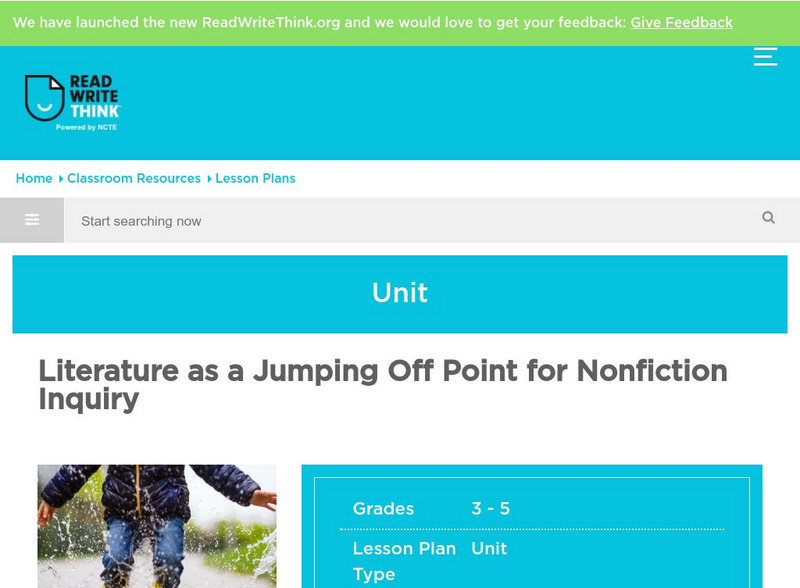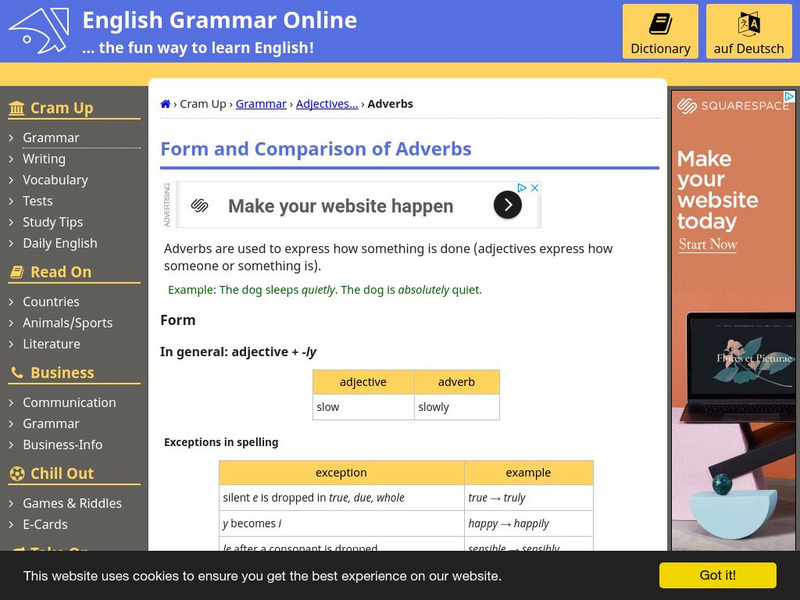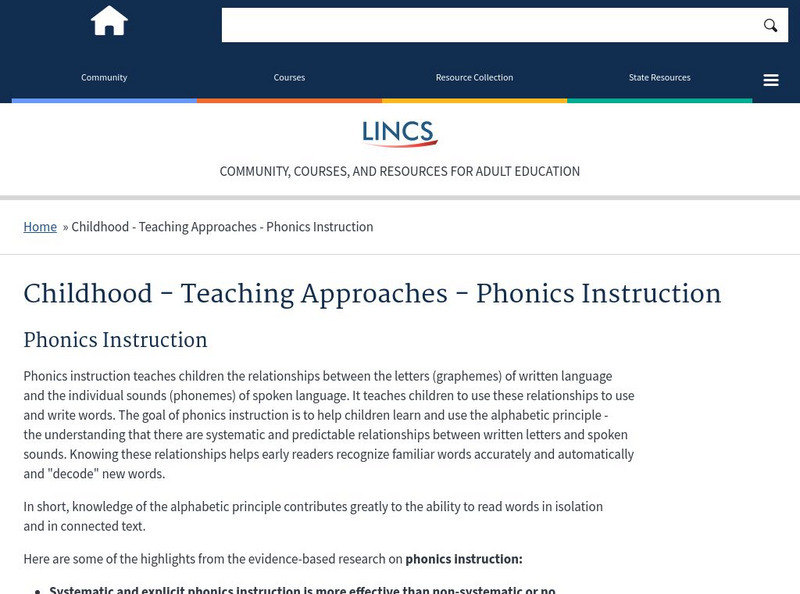Other
Kid Bibs: Effective Use of Textbook Features
Here, parents and teachers can find tips for helping young readers understand the expository writing found in textbooks.
ReadWriteThink
Read Write Think: Literature in Nonfiction Inquiry
This lesson plan involves students working in groups after reading a work of literature to develop text sets. Included in the lesson plan is an overview, practice, objectives, resources, preparation, and more.
ReadWriteThink
Read Write Think: Technical Reading and Writing Using Board Games
Contains plans for a game that helps teach technical reading and writing while reviewing a novel that students have read. In addition to objectives and standards, this instructional plan contains links to sites used in the lessons as...
ReadWriteThink
Read Write Think: Using Science Texts to Teach the Organization of Nonfiction
Contains plans for three lessons that use science textbooks to teach about the organizational features of nonfiction such as labels, captions, headings, and fonts. In addition to objectives and standards, this instructional plan contains...
Robin L. Simmons
Grammar Bytes: Subject Verb Agreement Power Point
Learn about subject-verb agreement and practice identifying correct agreement in questions that could be found on standardized tests.
Towson University
Towson University: Ows: Prepositions Exercise 1
This is a 10-question, self-grading exercise/quiz on using the correct Prepositions for each sentence. It is suitable for ESL as well as regular English classes.
Other
Assessing Grammar Proficiency
How do assess grammar proficiency? This site features information on authentic assessment and mechanical tests. Find out more by checking out this informative resource.
Other
English Grammar Online: Form and Comparison of Adverbs
Charts show how adverbs are formed from adjectives, and how to form the comparative and superlative forms for both regular and irregular adverbs. Exercises are available to practice your skills.
Mind Tools
Mind Tools: Improve Your Communications Skills
While the original audience for this site is the business community, the advice regarding communication skills is relevant for anyone, especially students who are preparing for the job market. Sections include tips on improving public...
Grammarly
Grammarly Blog: Everyday vs. Every Day
This page provides the rules for the proper use of the words "everyday" and "every day."
TeachEngineering
Teach Engineering: Write On!
In this activity, students create a book, newspaper or other published work to communicate what they have learned about engineering and the environment.
Grammarly
Grammarly Blog: Every Time
This page explains and provides the rules for use of the two-word compound "every time."
Grammarly
Grammarly Blog: Spelling
An explanation of the importance of spelling. Links to additional information about specific spelling rules are provided.
Grammarly
Grammarly Blog: Geographical Use of Definite Article The
This page provides rules for when to use and not use the article "the."
Grammarly
Grammarly Blog: Everyone vs. Every One
This article provides the rules for the proper use of the words "everyone" and "every one" with examples.
Grammarly
Grammarly Blog: Abstract Nouns
This page explains that an abstract noun is not identifiable by any of the five senses and provides examples.
Grammarly
Grammarly Blog: Adjective and Verb Placement
This page focuses on the relationships between adjectives and verbs including predicate adjectives, linking verbs, and participles --verbs used as adjectives such as the smiling baby.
Other
Pitner's Potpourri: Formal and Informal Language
A Common Core teacher resource provides an approach to educating students on the differences between formal and informal language.
Other
Match the Memory: Formal vs Informal Language
Match the Memory Interactive game where players match a word to either formal or informal language.
US Department of Education
U.s. Department of Education: Teaching Approaches: Phonics Instruction
Explore the world of phonics instruction. Students and teachers can benefit from this informative site, which outlines a phonics instruction plan.
Grammarly
Grammarly Blog: Adjectives and Adverbs What's the Difference?
This blog article focuses on adjectives and adverbs including their purpose and the confusion between them. It offers links pertaining to adjective and adverb use and misuse.
Robin L. Simmons
Grammar Bytes: Word Choice: Exercise 1: Their, There, and They're
Complete these 20 sentences by choosing the correct form of their, there, and they're.
Daily Teaching Tools
Daily Teaching Tools: How to Teach Spelling
A teaching resource with free downloads of PDF documents and graphic organizers along with guidelines and practice activities to use while teaching students to become better spellers.
Goodwill
Gcf Global: Adjectives and Adverbs
This tutorial explores the difference between adjectives and adverbs so you can use them properly.





















